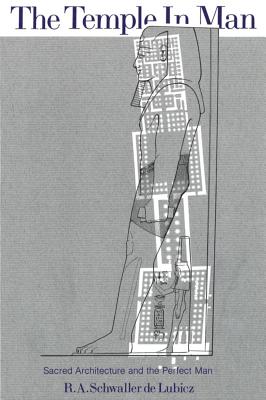Below is an excerpt from R. A. Schwaller de Lubicz's 1949 book, "The Temple in Man: The Secrets of Ancient Egypt." Translated by Robert & Deborah Lawlor. Published in 1977 by Autumn Press, Inc. Pg. 106-107.
"The Ancients never "popularized" anything; to the uninitiated they provided only the minimal useful teaching. The explanation, the philosophy, the secret connection between the myth and the sciences were the prerogative of a handful of specially instructed men. Did not Pythagoras wait twenty years before being admitted into the Temple? Did he not, in his own teaching, impose silence on pain of death? Therefore, this teaching was not written down.
Herodotus often mentions the obligation he was under to remain silent concerning "sacred" subjects. Therefore, these instructions had not been changed.
Furthermore, the druidical teaching was the privilege of a priestly class, guardians of the most secret oral traditions of a people.
People cling obstinately to the "classical" prejudice and, in order to defend this thesis, prefer to link the ancient Egyptians with the anthropoids! They would even diminish the value that the Greeks had in demonstrating the great Knowledge of ancient Egypt.
Did not the ancient Greeks go to study in the sanctuaries of Lower Egypt, as close to the source as possible? They had fewer prejudices than their modern champions! When Grapow denies the Ancients a knowledge of the nerves, of the circulation of blood, etc., we can remind him that Hippocrates, as Iversen recently confirmed (Carlsberg Papyrus No. 8, 1939), borrowed extensively from pharaonic documents, and did so in B.C. 450. Now, Hippocrates spoke of nerves, of blood circulation, and of glands.
Some will claim that Greece was able to understand, and elucidate rationally, what the Ancients had "dimly suspected" or known empirically.
It is certain that the Greek documents that have come down to us intact are rare, whereas the Egyptian monuments and texts provide inviolate evidence of their concepts and modes of expression. What has been transmitted to us through the indirect channel is that "analytical" mentality which is so contrary to the approach of the ancient Egyptians and was certainly excluded from the Greek Mysteries---that mechanical, "rational" mentality guilty of having led us to that disaster of which even the most blind now have some foreboding."
